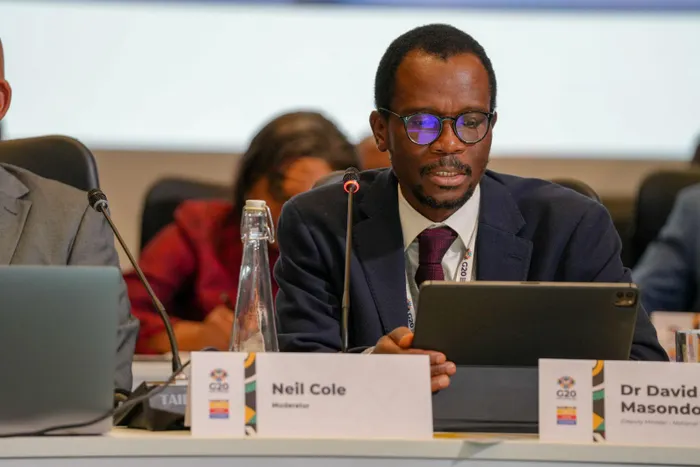
David Masondo, the deputy Minister for Finance whose incumbency in the board is a result of re-enforcing governance processes at the PIC, said the board owned up to the bad deals in the past and was implementing recommendations by the Judge Mpati Commission regarding them but that internally, the entity was revving the exit processes.
Image: GCIS
Banele Ginindza
Public Investment Corporation (PIC) board chairman, David Masondo, has said the new board was reviewing past bad transactions on principle, including appealing the arbitration process in the dispute where it had to pay R400 million to its loanee Acapulco as it defaulted on a loan and the R100m down the drain in an Enable Capital Investment.
Masondo, the deputy Minister for Finance whose incumbency in the board is a result of re-enforcing governance processes at the PIC, said the board owned up to the bad deals in the past and was implementing recommendations by the Judge Mpati Commission regarding them but that internally, the entity was revving the exit processes.
This is after the PIC has had to pay Acapulco Trade and Invest this sum following an arbitration that hinged on what the board views as an inflated appraisal of the airport’s worth.
At the core of the board’s discontent is the belief that Lanseria International Airport’s value was overstated by approximately R1.7 billion, enabling Acapulco to secure a substantial settlement despite forfeiting its equity due to an unpaid debt.
The arbitration relied on which positioned Acapulco’s 25% holding at around R1bn, allowing the firm to exit with a significant gain even after settling a R600m obligation, inclusive of interest.
"We are still determining whether we should appeal or not. We don't want what we are saying here be used against us. We also respect the confidentiality of the arbitration. The PIC will be the last entity to violate the law. We will not undermine arbitration but we are looking at it to determine what the next course of action in this regard," Masondo said.
"And yes, we have a legal opinion that says the chances for success are dimmed at this stage, but we are still having internal conversations to determine whether there are better prospects for success."
He said it's unfortunate that the valuation turned out the way it did as Lanseria was sitting at 64% of its pre-COVID performance.
"If you ask me it's completely unacceptable and there is no way you could overprice an asset like that because even in terms of the evaluation we have in our books as the year end, it was sitting at about 62% at under R400m, which actually says the total enterprise value should have been a billion rand," Masondo said.
"But how this guys went about this, we are still looking and these matters will be ventilated. We are challenging them further and we are quite positive that we will prevail in this regard."
On Enable Capital, in which the PIC paid R100m of a R200m commitment before red flags were picked up, Masondo said the transaction has led to a review of the processes where the PIC can approve transactions of up to R2bn without consulting the Government Employees Pension Fund, a major stakeholder.
"It was nothing further from fraudulent activity because many other dominant asset managers in the country found themselves in the same position. It was also good that the PIC was also able to stop the drawdown of the second portion of the R100m because they picked up there was something untoward," Masondo said.
"As a result, only the first R100m is what actually happened. Other asset managers were also on the same boat. We reported the matter to law enforcement and we are being given feedback on the progress."
BUSINESS REPORT